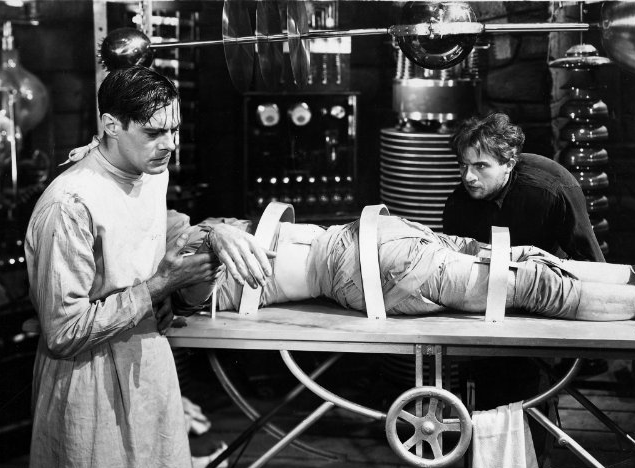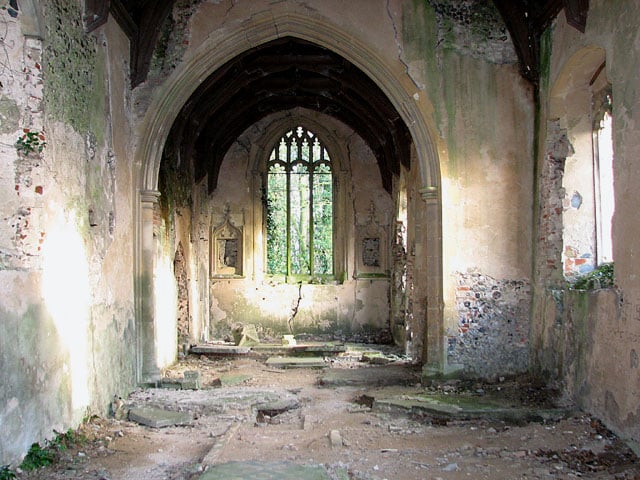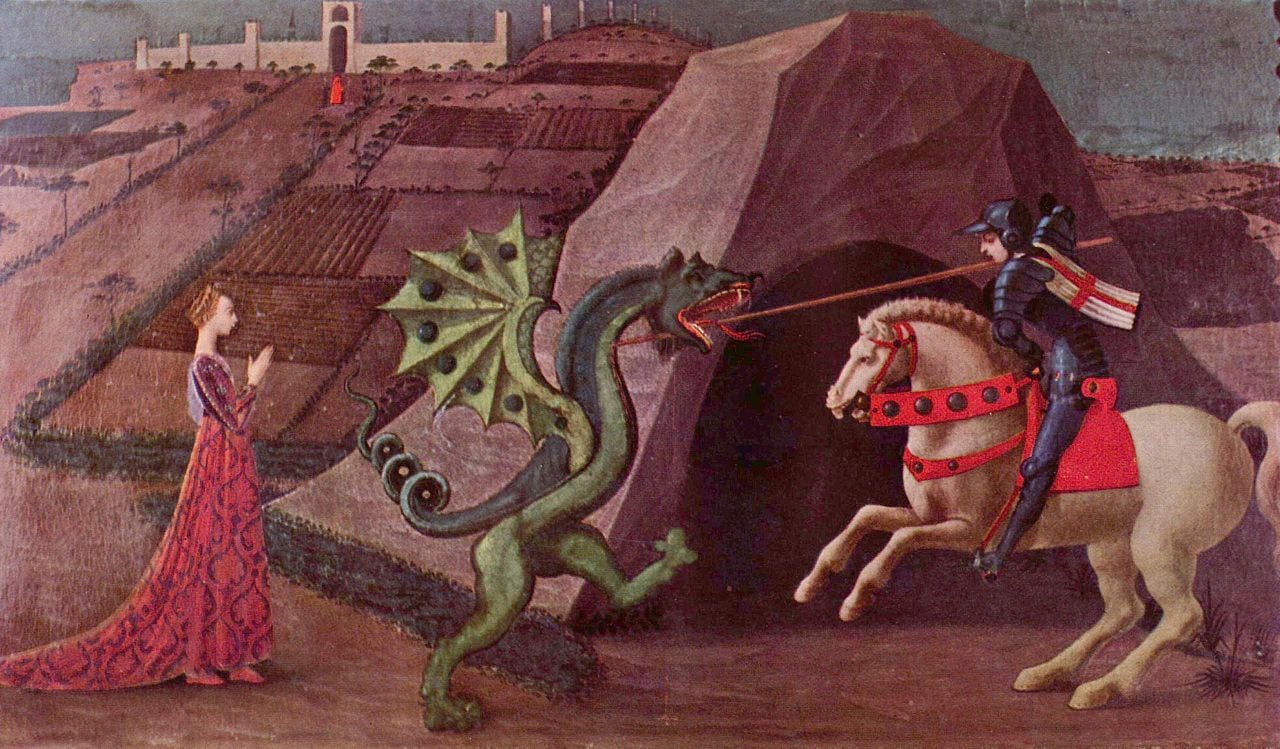Mary Shelley’s Frankenstein offers a warning to its readers by presenting a perversion of the creation story in Genesis. By the end of the novel, Victor Frankenstein’s egotistical aspiration to cause life has brought about destruction, solitude, death, and ultimately a permanent exclusion from human community, for both himself and his creature. This story and its consequences align precisely with and can be illuminated by John Paul II’s diagnosis of what he calls the “civilization of death” in his Letter to Families.
Breaking down the creation narrative in Frankenstein we discover distinct parallels between the fabrication of the creature and the two Genesis accounts as outlined by John Paul II in the Theology of the Body. In Genesis, the first (Elohist account) describes man’s creation in metaphysical terms: man is made in the image of God, but the particulars of his creation are not outlined. Likewise, Victor provides a brief overview of his creation by explaining that he labored to construct and give the creature the spark of life but leaves out the details. The second (Yahwist) scriptural account of creation complements the first with greater particularity, describing the creation of man and woman: how Adam was made first from the dust of the earth and Eve from his rib. This attentiveness to a process is echoed by the second account found in Frankenstein. The details are reported in Victor’s journal: As Adam was made from the dust of the earth, the creature was constructed from scraps Victor collected while graverobbing. What is the significance of these double accounts? John Paul II reads the Yahwist account as a “record of man’s self-understanding;” we might see something similar in Victor’s journal concerning the creature: he comes to a deeper self-understanding as he learns of his “accursed origin” through “the minutest description of [his] odious and loathsome person” (TOB, 137).
But in Frankenstein, the most important aspect of the creation story is missing: love. John Paul says that the “‘radical gift” of selfless love is “the divine motive for creation” (TOB, 180). God did not create man for Himself. Yet when Victor creates, he is only motivated by his own self-interest. He hopes that “a new species would bless [him] as its creator and source [and that] many happy and excellent natures would owe their being to [him].” Victor’s intention is to receive from rather than give to his creation.
Victor’s selfish motives originate in his pride which attempts to break through the boundary between life and death. Conversely, John Paul II asserts that in choosing whether or not to eat the fruit of the tree of the knowledge of good and evil, man decides between immortality and death (TOB, 154-155). Victor, when contemplating creating another being, says that “life and death appear to [him] ideal bounds, which [he] should first break through, and pour a torrent of light into our dark world.” Victor is precisely trying to usurp God’s power and Word by breaking through the “ideal bounds” of life and death. He imagines himself almost as a Christ-like figure, shedding light on a world seemingly haunted by death. But unlike Christ who gave of Himself through a true gift of spousal love, Victor, again, is only motivated by his own self-interest.
John Paul II’s exploration of what he calls the “original solitude” of prelapsarian man illuminates the creature’s predicament in Frankenstein. There are two aspects to man’s solitude in Genesis: 1) man is alone in his very nature and 2) man is alone without Eve (TOB, 147). Adam names the animals around him and realizes he is different from the rest of the visible world. Similarly, the creature looks at the cottagers, beholds their “perfect forms,”and upon examining himself, sees himself as, “the monster that I am.” John Paul emphasizes the role of the body in this discovery; he says that “the body…makes [man] aware of being ‘alone’”(TOB, 152). Man recognizes that he is a body among bodies, but his body sets him apart in creation. Victor’s creature has the same realization. And just as Adam recognizes that he does not have a suitable helper, so too the creature demands a companion. He even goes as far as to demand a female “of the same species…[who has] the same defects.” In his solitude, he pines for his own Eve who would be like him, down to the details of his physical form.
The creation account in Frankenstein renders a deeper solitude than in Genesis. John Paul II points out that from the beginning, man is “in search of his own being…in search of his own identity” (TOB, 149). Man is on a quest to understand who he is, especially in light of his differences from the rest of creation. This search is conducted “from the first moment of his existence before God” (Ibid.). The fact that “man finds himself alone before God” deepens his self-knowledge, and he comes recognize himself as a human being made in the Creator’s image (TOB, 150). The creature, just like man, is in search of his identity. But in the case of Frankenstein, the creature is abandoned by his creator and is thus deprived of that deeper self-discovery. The creator-creature relationship is denied, and with it, deeper self-knowledge.
These deviations from Genesis reveal the root of the destruction that pervades the novel. By the end, Victor and his creature have been excluded from the communion of persons because they lack an understanding of what it means to live “for someone.” John Paul II describes the communion of persons as “living in a reciprocal ‘for’ in a relationship of reciprocal gift…[which] is precisely the fulfillment of ‘man’s original solitude”(TOB, 182). Victor, in his attempt to become like God, has isolated himself completely from his family and friends. As he immerses himself in his studies, he is “alone…totally unfit for the company of strangers” and spends large portions of time in solitude. The creature, deprived of a female companion, is denied the fulfillment of that solitude. He then leads a life of destruction instead of living “to serve the truth in love” (LF, 20). He is unable to live “for someone” because his creator has not shown him an example of this self-gift in the way that God provided an example for man. Victor and his creature fall into a perpetual state of solitude and destruction because the creator has stepped outside of the boundaries of God’s order; he is surrounded by death, the very thing he sought to avoid.
The plot of Frankenstein paints a dark and grotesque picture, warning its readers to steer clear of those choices which lead us away from human flourishing. John Paul II explains that the mentality undergirding the civilization of death results in “the loss of the truth about one’s own self […] and consequently of a loss of love itself” (LF, 20). Victor only creates for his own self-interest, and as a result, he and his creature have lost an understanding of themselves. They are no longer able to participate in the communion of persons; and thus, what Victor hoped would one day bless him, now has led to his own downfall. Ultimately, generating life outside of God’s order leads to a society without love, truth, and goodness. Frankenstein clearly illustrates this, and in so doing, poses this question to the reader: what values ought we to cultivate in our own lives and, more broadly, our society today? Those that lead to death? Or life?
***
Sarah Rinaldi, a swimmer and Augustine-loving historiographer, is honing her skills at Hillsdale College in pursuit of becoming a classical educator.














